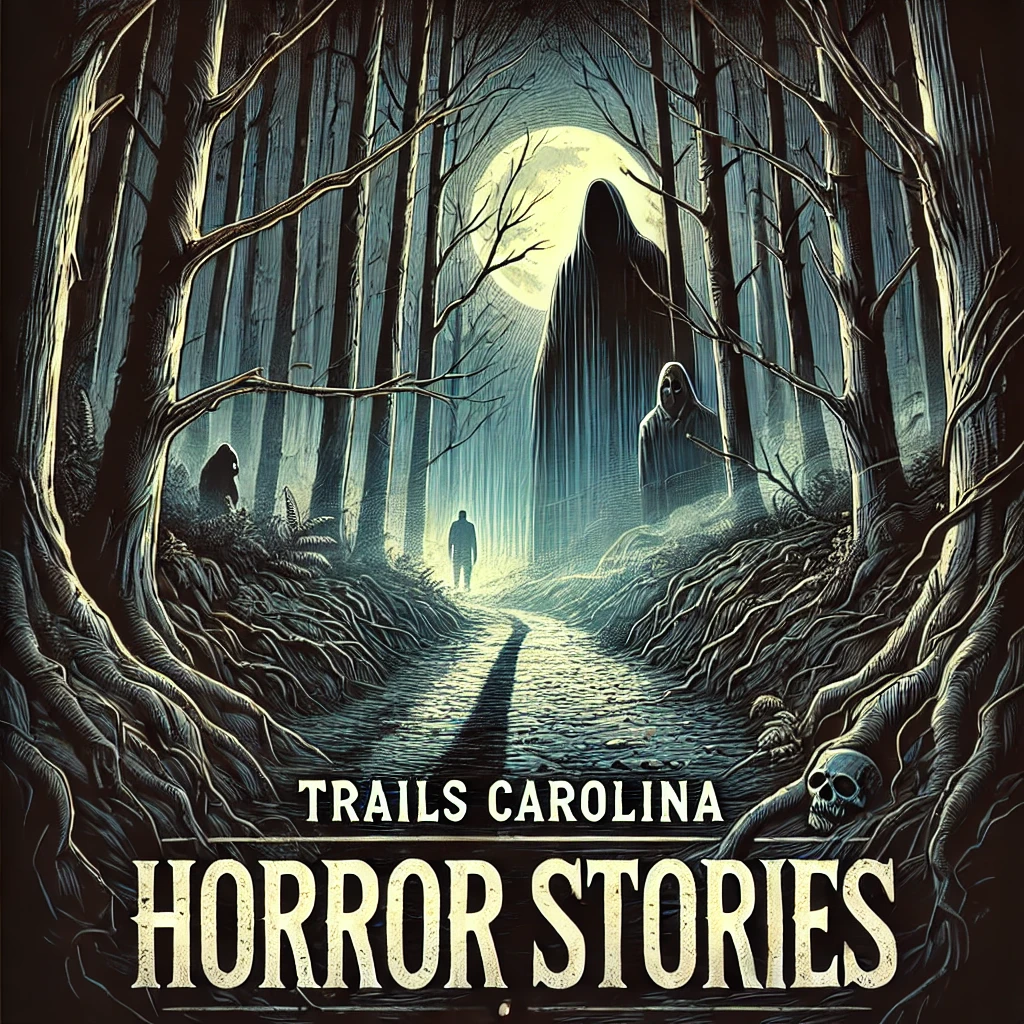
Imagine sending your child to a therapeutic program, hoping to find healing, but instead, encountering accounts of distress and concern. Such is the narrative surrounding the “Trails Carolina horror stories” that have emerged. These stories paint a troubling picture of a wilderness therapy program in North Carolina that was designed to support troubled teens. However, the unsettling experiences shared by former participants, their families, and even staff members raise serious questions about the program’s practices and effectiveness.
Overview of Wilderness Therapy Programs
Wilderness therapy programs like Trails Carolina offer an alternative therapeutic approach aimed at troubled adolescents. These programs promise a unique environment where young participants can find healing and personal growth through outdoor activities and guided therapy sessions. But recent “Trails Carolina horror stories” have exposed the darker side of such programs, sparking public debate over their safety, ethics, and effectiveness.
History of Trails Carolina
Trails Carolina was founded to offer an immersive wilderness experience for adolescents facing behavioral and emotional challenges. The program emphasizes building self-reliance, resilience, and personal growth. However, the “horror stories” that have emerged reveal a different reality, one where program flaws have resulted in emotional distress and allegations of mistreatment.
Allegations Timeline
The controversy around Trails Carolina did not appear overnight. Over the years, there have been numerous allegations of abuse, neglect, and emotional harm. Former participants have gradually come forward to share their stories, with some pointing to instances dating back several years. Legal actions and investigations, initiated by families and regulatory authorities, have added weight to these claims.
Survivor Accounts and Staff Insights
Many of the “Trails Carolina horror stories” originate from the experiences of former participants. Survivors have shared accounts of feeling isolated, emotionally neglected, and in some cases, physically mistreated. Some even reported traumatic incidents involving extended periods without basic hygiene, sleep deprivation, and intense psychological pressure.
Former staff members have also come forward to share their concerns. One staff member, Jonathan Hyde, recounted that inadequate training and insufficient support left them ill-equipped to manage the participants effectively. These perspectives highlight critical gaps in staff training and participant care, raising questions about the program’s operational integrity.
Impact on Families and Participants
The effects of these horror stories extend far beyond the participants themselves. Families who entrusted their children to Trails Carolina expected support, healing, and growth. Instead, some parents recount feeling betrayed after hearing their child’s traumatic experiences within the program. The emotional impact on families has been profound, with some struggling to rebuild trust and support for their children after such experiences.
Psychological Risks and Alternatives
Wilderness therapy is often seen as an innovative and transformative approach to adolescent behavioral therapy. However, without proper regulation and oversight, it can pose serious risks. The reported psychological effects on participants have included anxiety, depression, and in some cases, post-traumatic stress. For families considering wilderness therapy, it is crucial to explore safer, more regulated alternatives that prioritize participant well-being.
Legal Implications for Other Programs
The revelations around Trails Carolina have broader implications for other wilderness therapy programs. Many of these institutions operate with minimal regulatory oversight, making it easier for cases of mistreatment to go unreported. The ongoing legal actions against Trails Carolina set a precedent for other programs, signaling that allegations of abuse will not be taken lightly.
Regulatory Involvement and Legal Actions
The North Carolina Department of Health and Human Services (DHHS) has played an essential role in investigating the “Trails Carolina horror stories.” Their investigations have revealed multiple violations of health and safety regulations, as well as instances where incidents went unreported. Legal actions such as Mann v. Trails Carolina, LLC, highlight the serious nature of these allegations, which include claims of emotional and sexual abuse.
These legal proceedings are crucial in holding the program accountable and ensuring that corrective measures are implemented. While Trails Carolina has expressed its commitment to improvement, the ongoing scrutiny will be vital in achieving long-term change.
Steps to Take When Considering Wilderness Therapy
For parents and guardians, choosing the right program for their child is crucial. When considering wilderness therapy programs, it’s essential to ask questions about staff training, health and safety protocols, and participant oversight. Researching a program’s history and consulting with professionals can help families make informed decisions and avoid potential risks.
Survivor Advocacy and Support Resources
Survivors of traumatic experiences at wilderness therapy programs need a voice and support. Various advocacy groups and resources are available to help those affected by “Trails Carolina horror stories” and similar experiences. These organizations offer counseling services, legal advice, and community support to help survivors and their families cope and heal.
Social Media’s Role in Sharing Horror Stories
Social media platforms have played a critical role in amplifying the voices of survivors. Sites like YouTube and Twitter have become a space where former participants can share their “Trails Carolina horror stories,” allowing others to learn from their experiences. These stories have influenced public opinion and drawn attention to the need for greater oversight in wilderness therapy programs.
Influence on Public Perception
The widespread sharing of horror stories has significantly impacted how the public views wilderness therapy programs. Once considered a novel and promising approach, these programs are now under intense scrutiny due to accounts of abuse and neglect. This shift in perception has led to growing calls for tighter regulation, increased transparency, and more stringent safety measures.
Lessons Learned from Trails Carolina Horror Stories
The revelations surrounding Trails Carolina have underscored the importance of prioritizing participant safety. Key lessons include:
- Increased Regulation: The lack of strict oversight in wilderness therapy programs has led to numerous cases of mistreatment. Implementing more rigorous regulations is essential to ensure participant safety.
- Staff Training and Qualification: Proper staff training and adequate staff-to-participant ratios are vital in preventing instances of neglect and mistreatment.
- Transparency and Accountability: Providing clear and accurate information about program practices and fostering open communication with families are crucial in building trust.
Trails Carolina’s Response to Allegations
In response to the allegations, Trails Carolina has committed to making changes. The program has undergone an internal review, collaborated with regulatory bodies, and promised to prioritize participant safety moving forward. Trails Carolina has declared its cooperation with ongoing investigations and has vowed to implement improvements based on the findings.
Commitment to Improvement and Moving Forward
Trails Carolina’s commitment to improvement includes reviewing its practices, enhancing staff training, and implementing better safety measures. The goal is to rebuild trust and provide a supportive environment where participants can genuinely heal and grow.
Conclusion
The “Trails Carolina horror stories” serve as a stark reminder of the potential risks associated with wilderness therapy programs. As the investigation continues, it is essential to learn from these experiences and ensure that all programs prioritize participant safety and well-being. With increased regulation, transparency, and accountability, the wilderness therapy industry can evolve to offer a safer and more supportive environment for troubled adolescents.
By addressing these concerns, we can hope to create a future where wilderness therapy programs fulfill their promise of healing and growth, without the risk of harm or neglect.




